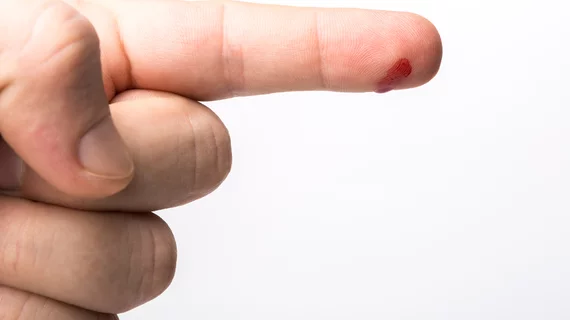Handheld device quickly tests coagulation
A Cleveland-based startup called XaTek has developed a handheld device that can inform users or physicians about their blood’s clotting ability within 30 minutes.
Named ClotChip, the device is the size of a cellphone and uses the blood from a finger prick to test coagulability via a disposable sensor. The results of the analysis—including how long blood takes to clot and the quality of the clot—can be sent wireless to a hospital’s electronic medical record or directly to a clinician, according to the Cleveland Plain Dealer.
The ClotChip could be used for patients with conditions like hemophilia or pulmonary embolism, or those who need to monitor how well their blood thinners are working.
A 200-person clinical trial is set to conclude this month and two larger trials are scheduled for 2020, XaTek’s founder and CEO told the newspaper. The company hopes the ClotChip is commercially available in five or six years.
Read more below:

